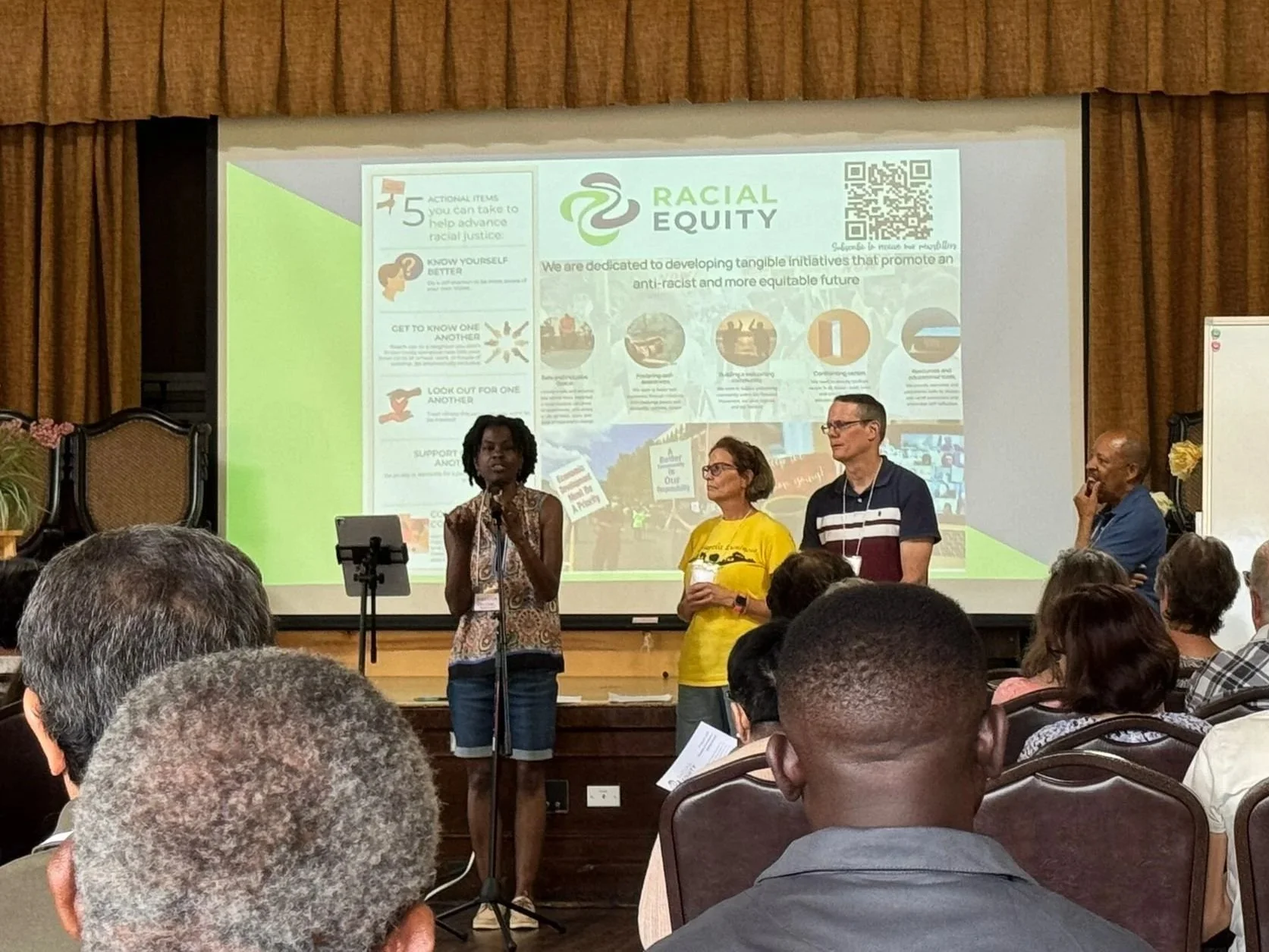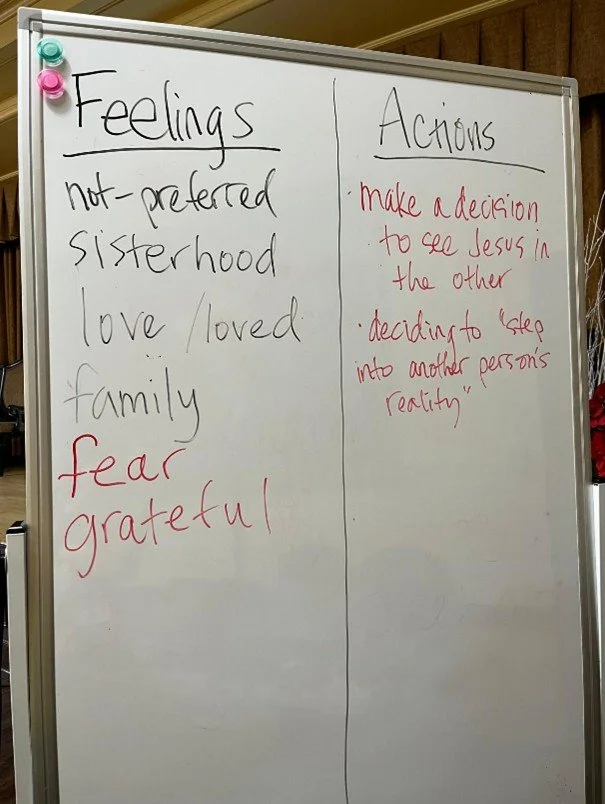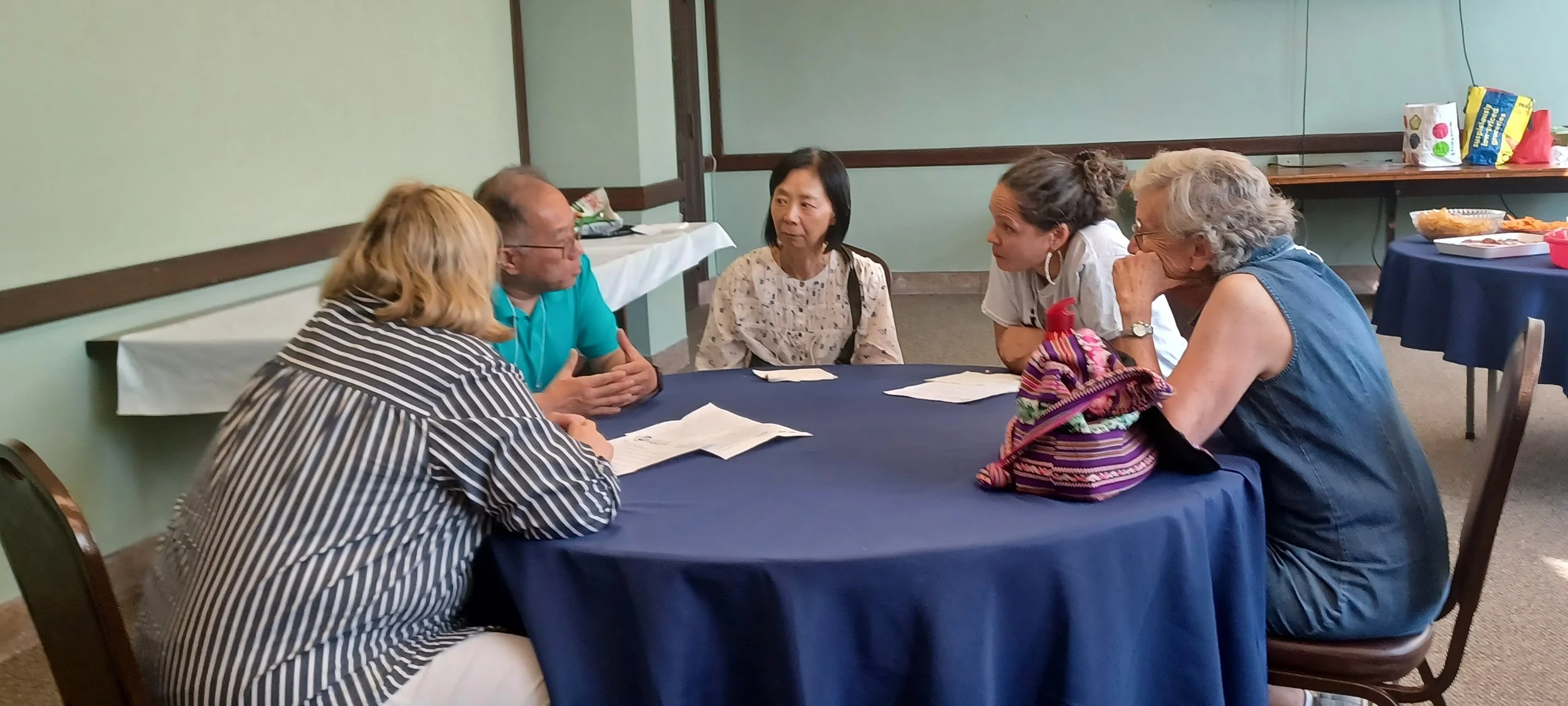What’s in it for me?
Racial Equity Workshop
Racial Equity offered a 90-minute workshop to an audience of nearly 200 participants at the Northeast Mariapolis in New York this past August. The program started with a summary of its beginnings when a series of questions came to the minds of a small group of people.
After witnessing the racial tension and conflict in New York City: “why do we hate one another, and what can we do about it?” After the murder of George Floyd in May 2020: “What ARE we going to do about this racism?”
The answer to both questions was: to love one another, and to dialogue. Two things we as people dedicated to “may they all be one’ live daily.
We started loving, listening, dialoguing, and having delicate but powerful conversations about race in the United States. Our group has hosted conversations about our biases, stereotypes, how our identities and cultures shape our ways of thinking and seeing ‘the other’. Recently, we touched on recognizing and understanding privilege – social privilege and economic privilege, in particular.
Continuing conversations over time gave rise to more questions amongst us: ‘Why do we even need these conversations? We love everyone.’ ‘Have we been living unity concretely, have we been loving everyone?’
This mariapolis workshop was an opportunity to continue these conversations and be an answer to the questions.
For this workshop 2 main questions were proposed:
Racial Equity: What’s in it for me?
Are we truly living so that all may be one?
An opening reflection was offered giving participants room to think of or write down a time when they were the only one of their race and how they felt or what action they took. Writing exercise.
In the next segment an answer was proposed to the first question “What’s in it for me?”: Answer: An experience of the kingdom of God. An experience of becoming closer to the variety of people in the kingdom – something closer to a true Trinitarian life.
When Pope Francis came to New York in 2015, en route to saying Mass at St Patrick’s Cathedral, they were going to drive the pope mobile through Central Park. They were allotting tickets to people by lottery. If you were lucky, you could get a ticket and wait in the park and watch the pope go by. You couldn’t buy the tickets. You had to just go online and apply and wait to see if you got one.
I procured a ticket! And waiting to enter the park through security, you could see the masses of people who showed up … believers, nonbelievers, curious people.
Anyone who could procure a ticket was there. We were all there – thousands of people – and we looked around, and it gave me the impression of the parable of the wedding feast from the Gospel of Matthew, where the people who were attending at the end were the people least likely to come, the last of the invitees, and they filled the hall. It really gave me the impression that everyone is invited to the feast.
When Pope Francis did arrive and they drove him through the park, it didn’t matter who you were, everybody cheered and raised their hands. Everybody was happy. It gave me the sense of what the kingdom of God is like. Everyone is invited, and everyone can be happy. Can you imagine being at that feast?
Paul Belcher’s experience highlights another example of becoming closer to the variety of people in the kingdom.
To answer the 2nd question, participants were given the chance to talk about it and come up with answers in small groups. They were reminded that “If we are aiming for a life that builds unity, that builds bridges, then we need to keep a clear eye on our choices and habits and look for ways to go toward each other so that we can learn from one another.”
These small group sessions were powerful and lively. At the end many expressed their gratitude for the workshop.






